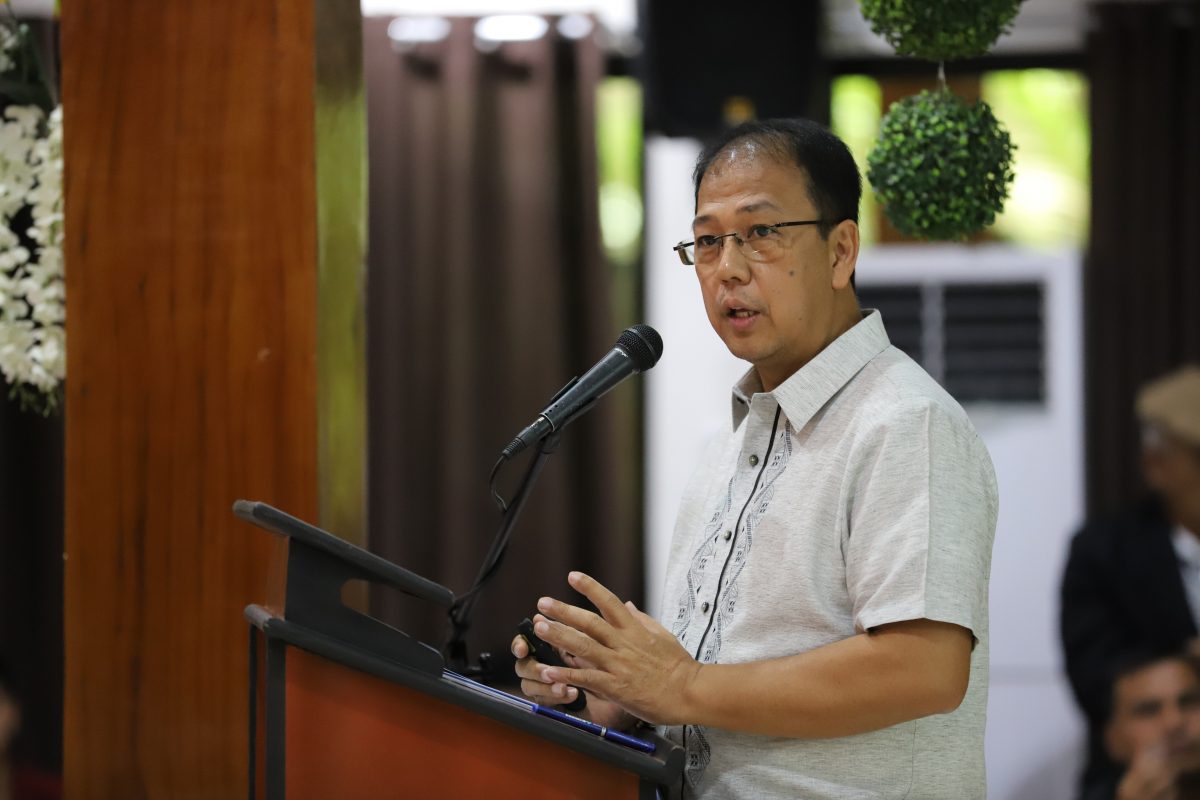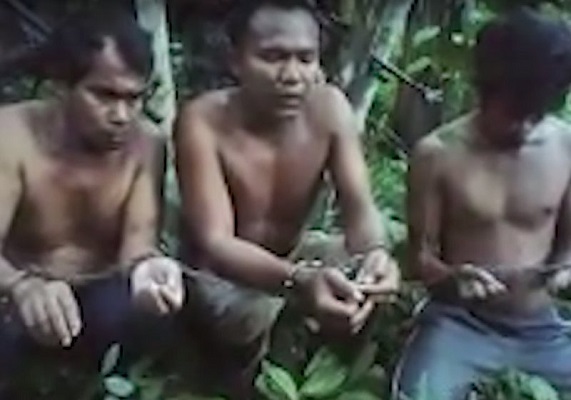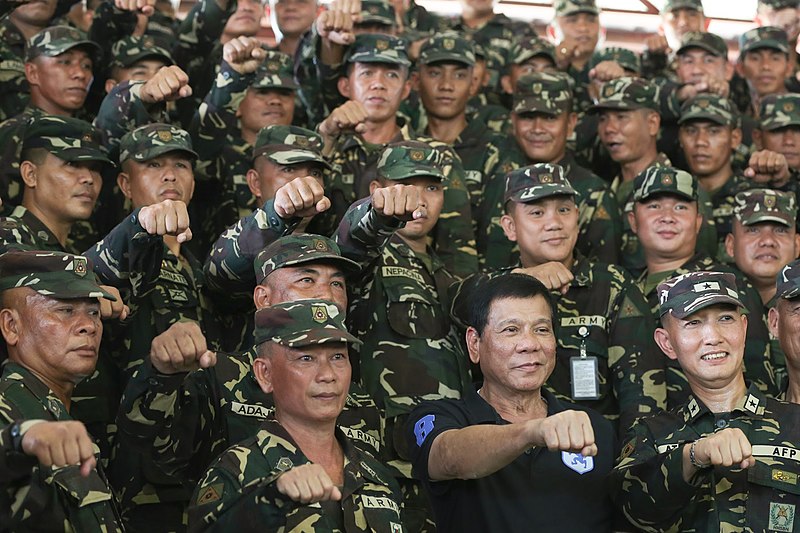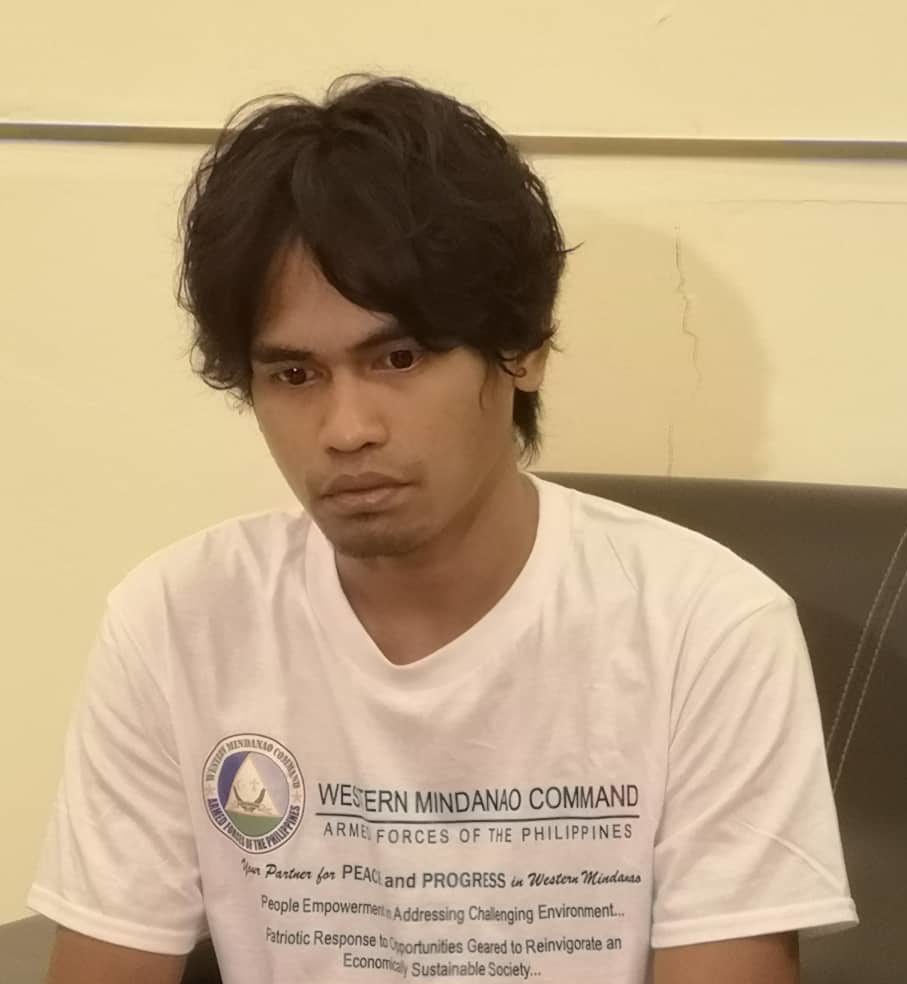Posted to the Office of the Presidential Adviser on the Peace Process (OPAPP) Website (Jan 10, 2020):
We do not need CASER — Galvez

MANILA, January 10, 2020 — The Filipino people have no need for the proposed Comprehensive Agreement on Social Economic Reforms (CASER) whose passage is being aggressively pushed by the Communist Party of the Philippines-New People’s Army-National Democratic Front of the Philippines (CPP-NPA-NDFP), according to Presidential Peace Adviser Carlito G. Galvez Jr.
“CASER is based on an obsolete framework and is no longer relevant since it is largely based on the pre-industrialization and pre-globalization era. It is a formula for the surrender of the national government’s integrity as well as the state’s sovereignty,” Galvez said.
He also described the CASER as an “irrelevant proposition and simply a copycat of the programs of the CPP-NPA-NDF” as outlined in the plagiarized content of Jose Maria Sison’s publication “Philippine Society and Revolution.”
“The CASER insists that the Philippine Government surrender its sovereignty and trample on its own integrity by forcing upon the state outmoded and erroneous concepts that were conceived more than half a century ago,” Galvez said.
The peace adviser pointed out that adopting the CASER and the Interim Peace Agreement could be likened to committing treason since the programs of the CPP-NPA-NDF based on its own constitution will be implemented across the nation, while the government bends its laws, norms, and other institutional democratic foundations.
“In hindsight, most of the CPP-NPA-NDF’s demands are almost impossible to implement mainly because they are totally skewed in favor of the interests of the communist insurgents,” Galvez said.
Discussions on the CASER has once again taken center stage, as the communist group’s top leadership has been insisting on its passage as a pre-condition for future talks with the government.
Questionable provisionsAmong these questionable provisions, Galvez said, is the one on Financing National Industrialization, wherein funds for such purpose will be sourced from “confiscated and expropriated assets of foreign monopoly capitalists, big compradors and bureaucrat capitalists.”
“First of all, we cannot agree with the language in which this particular provision has been framed. It has been crafted in such a way that we expect it to cast a dark cloud over the nation’s economy,” Galvez said.
“And second, such a measure will surely put the country at loggerheads with the international financial community, and consequently, could lead to the weakening and eventual decline of the country’s economic standing in global markets,” he added.
“In fact, if we don’t have an insurgency problem, our country’s gross domestic product could even hit double-digit figures,” Galvez said.
He noted that another worrisome provision contained in the CASER is the demobilization of the Armed Forces of the Philippines, which states that the military must stand down its troops across the country.
As a former AFP chief of staff, he stressed that it is the armed force’s duty to protect the Filipino people from both external and internal threats, saying, “Clearly, the military shall lose its capability to carry out this crucial function once it is demobilized.”
“If the CPP-NPA-NDF does not have any hidden agenda, then why does it want the AFP to demobilize its troops and yet the rebel will not do the same with its armed wing? Since 1992, the CPP-NPA-NDF has not given any indication that they accept the conditions of disarmament, demobilization, and reintegration of their members,” Galvez emphasized.
The CASER, he said, is also advocating for the establishment of a coalition government with the communist group by setting up “programs for the People’s Democratic Government…”
Galvez said another objectionable provision of the CASER and the proposed Interim Peace Agreement which the CPP-NPA-NDF has been pushing for is the major role the rebel group in endorsing the involvement of the NPA with the “national democratic and people’s organizations” which will take part in the implementation of the land reform, and other rural development programs.
He said these provisions of the CASER and the Interim Peace Agreement will unwittingly set the stage for power-sharing with the government, explaining that “The provisions will compel the government to accept the rebel group’s belligerency status, while the more serious and objective requirement of disarmament, demobilization and reintegration are being schemingly blocked off by CASER and the Interim Peace Agreement.”
“CASER is a product of a secret backchannel maneuver by the communist insurgents. There was zero consultation with the government’s economic team, security forces, local agencies, and local government units, and most importantly, the Filipino people who have suffered the most during this decades-long armed conflict,” Galvez pointed out.
According to Galvez, CASER is a “perfect formula for sabotaging our current economic gains, will lay to waste the distribution of more than 100,000 hectares of land for our poor farmers, and disregard the significant peace gains achieved under Executive Order No. 70 which created the National Task Force to End Local Communist Armed Conflict and institutionalized the Whole-Of-Nation Approach on good governance.”
According to Galvez, these are among the main reasons why former chief negotiators decided not to compromise with the NDF’s terms since it will blatantly surrender our sovereignty and the integrity of our constitution, saying, that the peace talks were based on the wrong framework and grossly disadvantageous to the government.
For years, the talks were anchored on the Hague Declaration of 1992, which is being used by the CPP-NPA-NDF to assert their status of belligerency, and the Joint Agreement for Safety and Immunity Guarantees (JASIG) of 1995 and Comprehensive Agreement on Human Rights and International Humanitarian Law (CAHRIL), which have been blatantly abused and violated by the communist insurgents.
“CASER will also send our country backward because it contradicts with existing laws, such as the Indigenous Peoples’ Rights Act of 1997. Under CASER, the CPP-NPA-NDF takes away the direct participation of the IPs in issues such as agrarian reform,” Galvez said.
Galvez also lambasted the communist group for continually using the peace talks as an opportunity to bring more recruits to their fold, and carry-out criminal activities.
At present, 45 provinces, 340 municipalities, 21 cities and 3,229 barangays have already expressed their rejection of the CPP-NPA-NDF and its activities by declaring them “persona non-grata.”
In Davao City, Mayor Sara Duterte-Carpio has expressed her opposition to the resumption of peace talks with the CPP-NPA-NDF.
“To believe that they desire a peaceful end to the insurgency problem would be playing ignorant of their bloody habit — how they slaughtered countless civilians in the past and made many countryside communities suffer from poverty and underdevelopment, and blaming the government for it,”Duterte-Carpio said.
Duterte-Carpio’s stand found backing from the Regional Task Force to End Local Communist Armed Conflict (RTF-ELCAC) 11, which issued a joint Regional Peace and Order Council-Regional Development Council (RPOC-RDC) resolution against the peace talks resumption.
For his part, Davao de Oro governor Jayvee Tyron Uy said the local peace engagement is a more viable track than resuming talks with the group of Mr. Sison.
“The last three years saw major improvements in the peace and security situation in Davao de Oro. An unprecedented number of former rebels returned to the folds of law and are currently accessing livelihood assistance, communities are now actively participating in the government’s campaign for peace and national government agencies and non-government organizations are converging with local government units to help address the causes and triggers of conflicts,” Uy, who the chair of the RDC 11, said.
“These achievements prove that local peace engagements are viable and effective. In my view, it is necessary to sustain our momentum so that we may be able to secure enduring peace and inclusive development,” he added.
“Real peace cannot be achieved without decommissioning of all NPA combatants and Normalization and Social Healing of conflict affected communities,” Galvez said.
Galvez stressed that genuine peace can only be achieved through the process of normalizing the way of life of residents in communities and decisively ending the armed conflict through the disarmament, demobilization and reintegration or normalization of rebels, proposals which have been flatly rejected by the NDF.
He also called for more extensive discussions on social justice, a greater dedication and commitment to good governance, and a holistic approach in delivering much-needed services and reforms to underdeveloped, “last-mile” communities.
“All of these initiatives are already being implemented under EO 70 and the social reform agenda of the Duterte administration. They are pushing for CASER because they want to take credit for the achievements of the Duterte administration,” Galvez said.
“However way we look at it, CASER is a flawed document. And even if the government signs the agreement, it cannot be implemented due to legal issues. We can therefore expect the Red to use the government’s non-compliance of the CASER as a justification for committing acts of violence in the future,” he added.
Galvez added the government is currently implementing major policy reforms covering the areas of agrarian reform, anti-poverty social programs, education, universal healthcare, labor and employment, and indigenous people’s rights.
These programs successfully lifted more than six million Filipinos from poverty, dramatically reduced unemployment, distributed more than hundred thousand hectares of land, free education and irrigation, and provided universal health care to marginalized individuals.
The peace adviser said this led to the surge of President Duterte’s latest public approval rating to 87%, or nine points higher than the previous survey done by the Pulse Asia released in December 21, whose results were unprecedented.
“What the government is doing now is way beyond what CASER can achieve,” he said.
Government economic managers had projected during the early part of this year that the Philippine economy would expand within the range of 6 to 6.5 percent in 2019.
He stressed that the Duterte Administration has, time and again, demonstrated its willingness to walk the extra mile for the sake of peace. This sincerity, he said was best exemplified by the ceasefire agreement the government declared with the rebels during the holiday season.
“Unfortunately, the CPP-NPA-NDF has failed to match that same level of sincerity of the government, as they continue to attack our soldiers, burn public and private installations, and worse, kidnap, rape and kill innocent civilians whom they profess to serve, Galvez said.
“If Jose Maria Sison cannot command his forces to stop carrying out such unlawful acts and to stand down, how then can he effectively lead an organization whose main goal is to help uplift the lives of the masses? As I have previously said, we must walk our talk,” he said.
“Sison and his organization must not demand for the passage of CASER because the communist terrorist group (CTG) has no territorial jurisdiction over any part of the country in the first place,” Galvez said.
“So far, the forces of the CTG are diminishing by the day, with their area of operations mostly limited now to the provinces of Samar, Bicol, and Negros,” he added.
Sustaining the gains of peaceIn the meantime, Galvez said, the government, in collaboration with its local and international partners, will continue to implement initiatives that will build on the gains of peace achieved over the past years and bring development to remote, conflict-affected areas in the country.
To date, he said, thousands of communist rebels have peacefully laid down their arms. According to these former rebels (FRs), they are fed up with the lies being peddled by the rebel group’s leadership, and the extreme hardships they have been made to endure in the mountains.
“These FRs have found a true ally in the government and are now reintegrating themselves into mainstream society as peaceful and productive citizens. In fact, some of them have come forward to speak about the various atrocities being committed by their former comrades,” Galvez said.
“And through localized peace engagements (LPEs) under the Whole-of-Nation Approach, which are being spearheaded by local government units, we expect more rebels to return to the folds of the law as help them develop the capacity to earn a sustainable living,” he added.
“If the CPP-NPA-NDF leadership is truly sincere in forging a peaceful settlement with the government, it must demonstrate a greater level of reciprocity and must stop setting impossible preconditions, such as shoving CASER down the Filipino people’s throats,” Galvez concluded. ###
https://peace.gov.ph/2020/01/we-do-not-need-caser-galvez/













